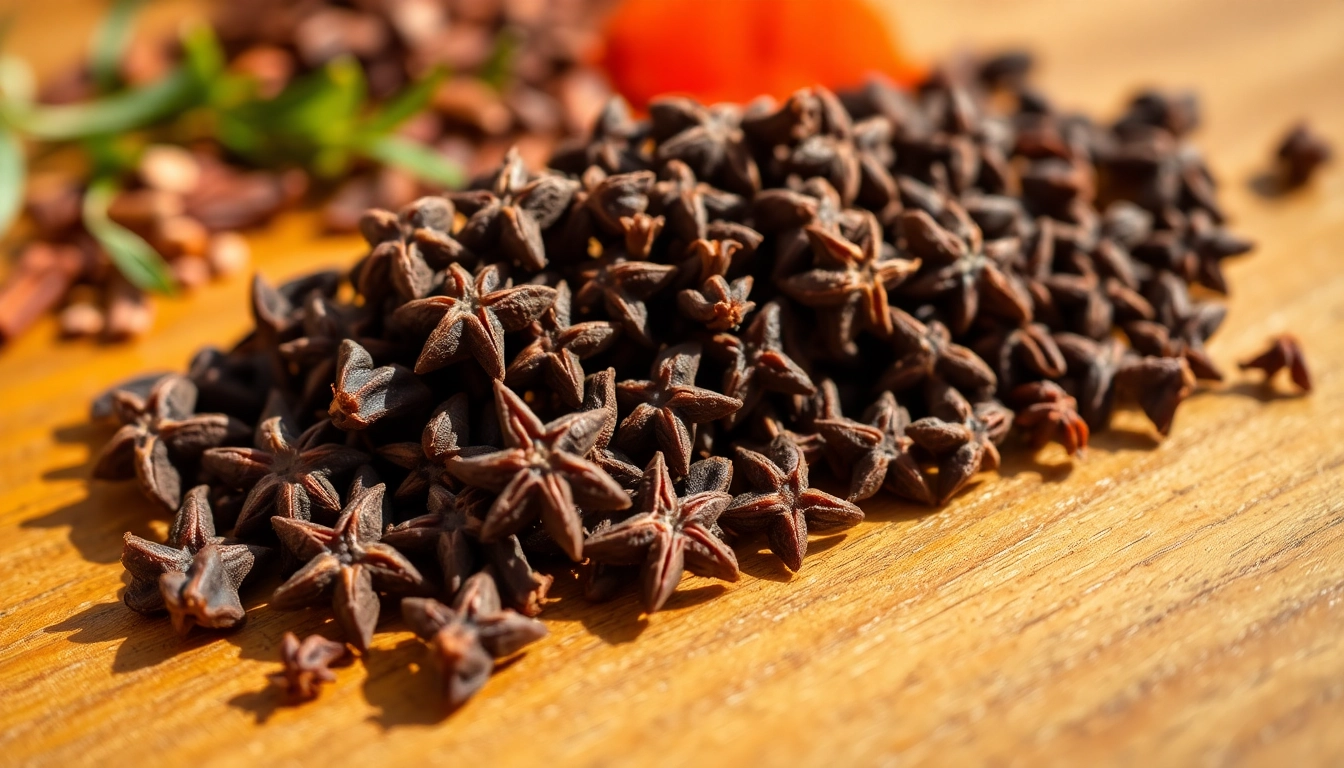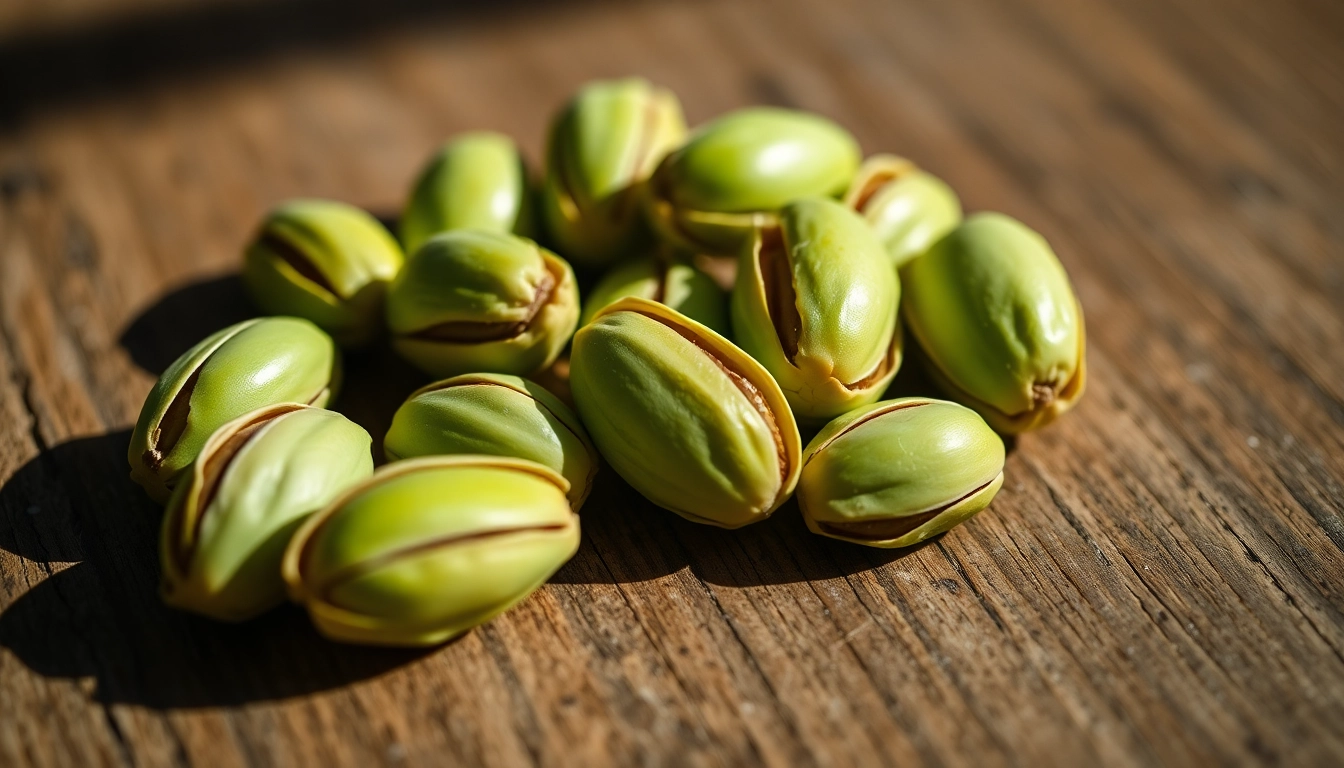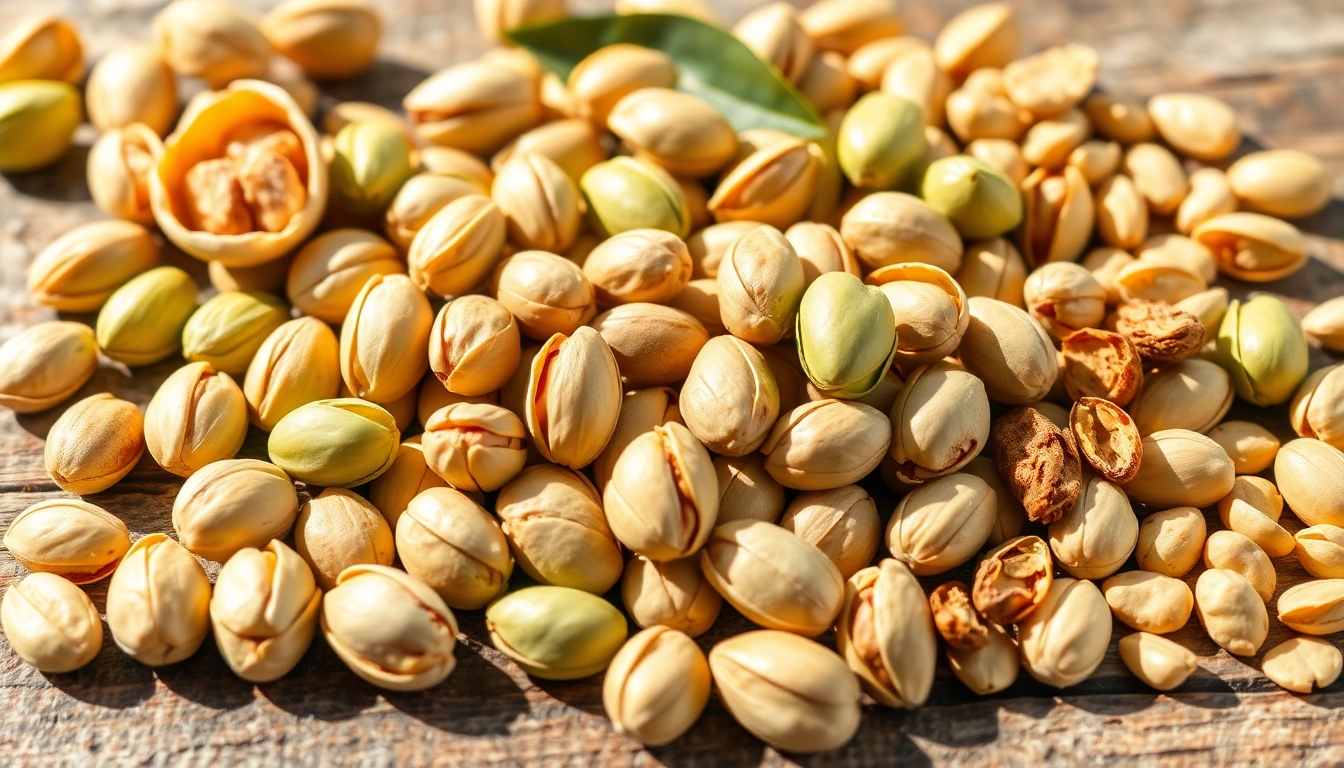Understanding Cloves: Origins and Characteristics
What Are Cloves?
Cloves are the aromatic flower buds of the clove tree, known scientifically as Syzygium aromaticum. These buds originate from a tree in the Myrtaceae family and are characterized by their small, reddish-brown color and distinct flavor profile. Native to the Maluku Islands in Indonesia, cloves are an essential spice used worldwide in cooking, perfumery, and traditional medicine. Their unique flavor, described as sweet and slightly bitter with a warming sensation, makes them highly sought after in culinary traditions across cultures.
The intense aroma and flavor of cloves are primarily due to a compound called eugenol, which also contributes to their medicinal properties. Whole cloves are typically used in cooking, while clove oil, extracted from the buds, is often utilized in aromatherapy and natural health remedies. To explore the diverse uses and benefits of these remarkable buds, delve into this detailed guide on cloves, their history, culinary applications, and health benefits.
The History of Cloves in Culinary Use
The history of cloves is as rich as its flavor. Cloves have been valued as a spice for thousands of years. The ancient Egyptians used cloves not only for flavoring but also for embalming purposes. They were traded extensively along the spice routes connecting the East and West, making them one of the most sought-after spices in Europe during the Middle Ages. The high demand for cloves led to the establishment of trade monopolies, with the Portuguese and Dutch vying for control over their production.
In culinary applications, cloves have traditionally been used in both sweet and savory dishes. In the Middle East, they infused spice mixes, while in Europe, they became integral to holiday recipes like mulled wine and gingerbread. The distinct flavor of cloves can transform ordinary dishes into extraordinary culinary experiences, accentuating the profile of meats, vegetables, and baked goods alike.
Identifying Quality Cloves: What to Look For
To enjoy the full range of flavors and benefits that cloves offer, it’s essential to select quality products. When searching for cloves, consider the following:
- Appearance: High-quality cloves should have a uniform shape and a deep, rich brown color. They should appear plump and intact without visible signs of damage.
- Aroma: Fresh cloves emit a strong, pungent aroma that is unmistakable. If the smell is faint or stale, it may indicate that the cloves are old or of poor quality.
- Origin: Cloves from specific regions, such as Indonesia and Madagascar, are often recognized for their superior quality. Look for labels indicating the origin for the best flavor and potency.
Health Benefits of Cloves
Nutrition Profile of Cloves
Cloves are not just a flavor enhancer but also a nutrient powerhouse. They contain essential vitamins and minerals, including:
- Manganese: Vital for bone health, metabolism, and antioxidant defense.
- Vitamin C: An important antioxidant that helps boost the immune system.
- Vitamin K: Essential for bone health and blood clotting.
- Fiber: Aids in digestion and supports gut health.
Moreover, cloves provide a small number of calories while delivering a wealth of health benefits, making them a great addition to any diet.
Antioxidant Properties and Their Impact
Cloves are exceptionally high in antioxidants, particularly eugenol, which can help neutralize free radicals in the body. Free radicals are unstable molecules that can cause oxidative stress, leading to chronic diseases such as heart disease, diabetes, and cancer. Studies have shown that the antioxidant properties of cloves can help reduce inflammation and improve overall health, highlighting their role in preventive medicine and wellness.
Potential Medicinal Applications of Cloves
Beyond their culinary uses, cloves have been employed in various traditional medicine practices around the world. Notable medicinal applications include:
- Pain Relief: The eugenol in cloves has been found to have analgesic properties, making clove oil a popular remedy for toothache.
- Digestive Health: Cloves can aid digestion and reduce bloating and gas. They act as a carminative, which helps alleviate intestinal gas.
- Antimicrobial Properties: Cloves have shown promise in combating certain strains of bacteria and fungi, making them a natural choice for preserving food and promoting oral health.
Culinary Uses of Cloves
Incorporating Cloves into Recipes
Cloves can elevate dishes with their powerful flavor, and they can be used in various forms—whole, ground, or infused. Here are some ideas for incorporating cloves into your cooking:
- Spice Blends: Add ground cloves to spice mixes for meats or curries to create depth and complexity.
- Baking: Incorporate whole or ground cloves into cakes, cookies, or breads for a warm, spicy flavor. They are particularly popular in gingerbread and holiday desserts.
- Infused Liquids: Use cloves to infuse liquids such as syrups or drinks like chai tea or mulled wine for a festive touch.
Pairing Cloves with Other Spices
Cloves pair beautifully with a variety of other spices, creating a symphony of flavors in your dishes. Consider the following combinations:
- Cinnamon: Together, these spices create a warm, sweet-spicy flavor ideal for holiday treats.
- Nutmeg: Nutmeg and cloves enhance the flavor of baked goods, making them rich and aromatic.
- Cardamom: These two spices complement each other perfectly in Indian dishes and fragrant teas.
Traditional Dishes Featuring Cloves
Many cultures have traditional recipes that prominently feature cloves. Some noteworthy dishes include:
- Garam Masala: An essential spice blend in Indian cuisine that often includes cloves, used in curries and stews.
- Beef Bourguignon: A classic French dish where cloves are used to deepen the flavor profile.
- Glühwein: A traditional German mulled wine featuring cloves for a rich, aromatic drink during winter celebrations.
Using Cloves in Home Remedies
Clove Oil: Benefits and Applications
Clove oil is a versatile essential oil known for its numerous benefits. Here are some applications:
- Oral Health: Clove oil can effectively alleviate toothache pain and reduce oral inflammation.
- Topical Applications: Used in diluted form, clove oil can be applied to help with sore muscles or joint pain.
- Natural Insect Repellent: The strong aroma of clove oil can deter insects, making it an excellent natural repellent.
DIY Clove Infusions and Teas
Creating your clove-infused products at home is simple and rewarding. Here are two suggestions:
- Clove Tea: Steep whole cloves in boiling water for 10-15 minutes, then strain. Enjoy this aromatic tea as a digestive aid or soothing drink.
- Clove-Infused Oil: Combine whole cloves with a carrier oil (like olive or coconut oil) and let it steep in a warm place for several weeks to create an aromatic oil ideal for massage or skin care.
Cautions and Considerations When Using Cloves
While cloves offer numerous health benefits, it’s essential to use them responsibly. Some considerations include:
- Allergies: Some individuals may experience allergic reactions to cloves, so it is essential to start with small amounts.
- Medical Conditions: Those on blood thinners or with bleeding disorders should consult a healthcare provider before using clove oil due to its anticoagulant properties.
- Pregnancy: Pregnant women should be cautious with clove oil and should consult a healthcare professional before using it in medicinal quantities.
Where to Buy and Store Cloves
Best Practices for Purchasing Cloves
When shopping for cloves, consider purchasing from reputable spice vendors or organic stores. Look for:
- Whole vs. Ground Cloves: Whole cloves retain their flavor longer than ground cloves. If possible, buy whole and grind them as needed.
- Organic Options: Choosing organic cloves may provide additional assurance regarding their purity and flavor.
- Bulk Purchasing: If you use cloves frequently, consider buying in bulk to save money and reduce packaging waste.
Storing Whole and Ground Cloves
Proper storage is vital to maintain the flavor and potency of cloves:
- Whole Cloves: Store in an airtight container in a cool, dark place. They can last for several years if stored correctly.
- Ground Cloves: Store in a similar manner, but use within six months for optimal flavor, as ground spices tend to lose potency more quickly.
Online and Local Retail Options for Cloves
Cloves can be found in a variety of grocery stores, specialty spice shops, and online marketplaces. Popular options include:
- Local health food and organic stores for high-quality, non-GMO brands.
- Online retailers like Amazon for bulk purchases or specific brands.
- Farmers’ markets, often featuring locally sourced and organically grown options.



